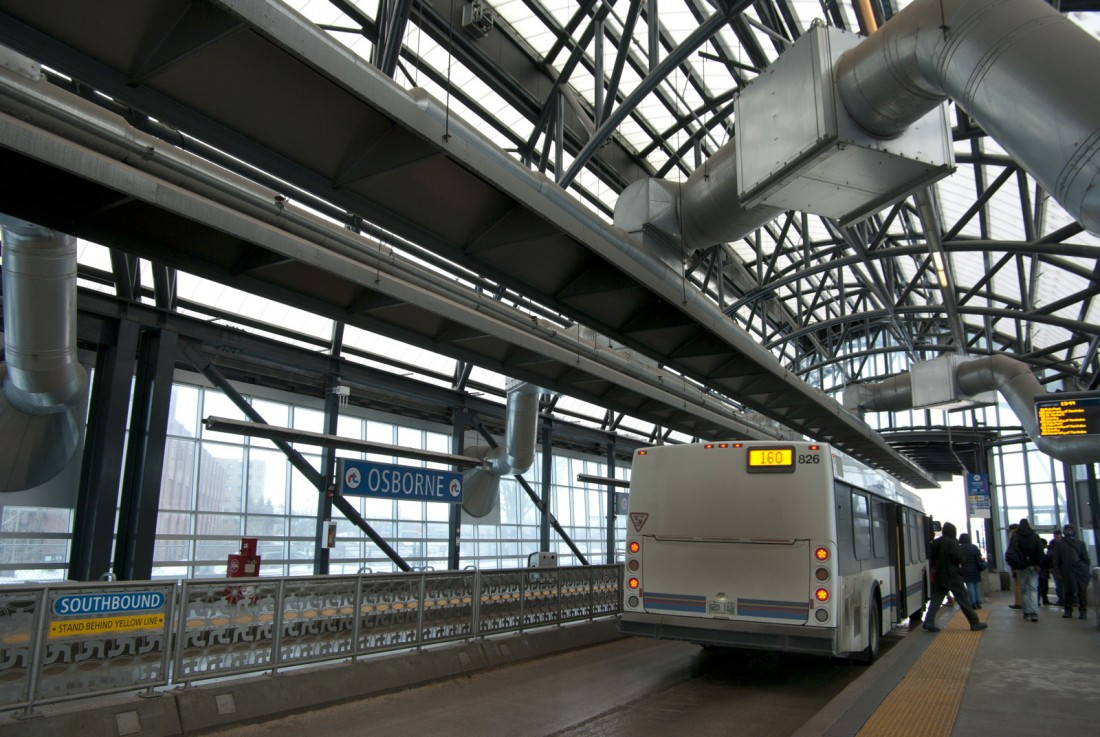Improving conduct overall
New rules for Winnipeg Transit riders and technology updates to 311
Winnipeg Transit has rolled out a code of conduct and public education campaign on the importance of safety and security for transit operators and passengers.
The Transit Code of Conduct, which was finalized in December 2015, was created to encourage appropriate behaviour and conduct while using Transit services.
Joseph Kornelsen, the spokesperson for Functional Transit, a group that advocates for the betterment of public transit in Winnipeg, compares the code of conduct to Winnipeg Transit’s longstanding “Busology” tips, that aim to illustrate rider protocol on transit.
“It takes a firmer stance to communicate the importance of respectful behavior in public spaces,” Kornelsen says. “I certainly see the value of it.”
Winnipeg Transit will make new decals and signs on buses, transit stations and service centres to highlight the specific rules and regulations riders are to follow. The purpose of these signs is to remind the public of the consequences of threatening or attacking transit employees.
Harry Wolbert, the co-chair of Winnipeg Transit Riders’ Association is pleased the public is finally being educated about safety and security on buses.
“Everyone has a right to feel safe and be safe on the bus. No one should ride in fear.”
He would like to see police presence on buses as he feels the Codes of Conduct alone will not have a significant impact on the issue of assault to transit operators and passengers.
...
Following a city auditor’s report adopted by city council in February 2015 that outlined 13 recommendations for the city services hotline, 311 has begun to make some changes.
Nine out of the 13 recommendations have already been implemented. In late December a 311 self-service website was launched with features that enable clients to obtain service without the need to call the contact centre.
In the report the auditor stated that 87 per cent of citizens are satisfied with services provided by 311. The contact centre was found to provide services to Manitobans with high transparency, and as 311 allows citizens to track the progress of their service calls, their accountability has also increased.
However, the service was found to not have met their goal of answering 80 per cent of incoming calls in 30 seconds, and to reduce the call per minute cost. To address this issue, 311 has introduced a number of updates to their system. In February, they will launch the use of Interactive Voice Response (IVR) technology.
This will cater specifically to more complex inquiries that are typical of interactions with Assessment and Taxation, and Animal Services. IVR technology will help to route calls of particular subject matter to the appropriate expert.
Kailey Barron, a communication projects officer with the City of Winnipeg, explains that the improvements that will increase the quality and efficiency of service.
“The changes are anticipated to result in shorter talk-times, leading to shorter wait times for callers overall,” Barron says.
A public education campaign will be held to create awareness prior to the launch in early February.
Published in Volume 70, Number 18 of The Uniter (February 4, 2016)








